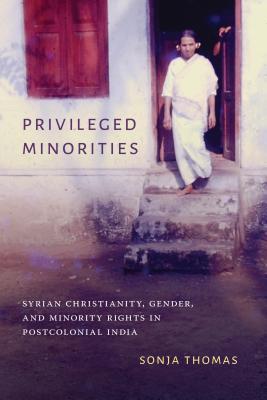Although demographically a minority in Kerala, India, Syrian Christians are not a subordinated community. They are caste-, race-, and class-privileged, and have long benefitted, both economically and socially, from their privileged position. Focusing on Syrian Christian women, Sonja Thomas explores how this community illuminates larger questions of multiple oppressions, privilege and subordination, racialization, and religion and secularism in India.
In Privileged Minorities, Thomas examines a wide range of sources, including oral histories, ethnographic interviews, and legislative assembly debates, to interrogate the relationships between religious rights and women's rights in Kerala. Using an intersectional approach, and US women of color feminist theory, she demonstrates the ways that race, caste, gender, religion, and politics are inextricably intertwined, with power and privilege working in complex and nuanced ways. By attending to the ways in which inequalities within groups shape very different experiences of religious and political movements in feminist and rights-based activism, Thomas lays the groundwork for imagining new feminist solidarities across religions, castes, races, and classes.

Privileged Minorities: Syrian Christianity, Gender, and Minority Rights in Postcolonial India
Although demographically a minority in Kerala, India, Syrian Christians are not a subordinated community. They are caste-, race-, and class-privileged, and have long benefitted, both economically and socially, from their privileged position. Focusing on Syrian Christian women, Sonja Thomas explores how this community illuminates larger questions of multiple oppressions, privilege and subordination, racialization, and religion and secularism in India.
In Privileged Minorities, Thomas examines a wide range of sources, including oral histories, ethnographic interviews, and legislative assembly debates, to interrogate the relationships between religious rights and women's rights in Kerala. Using an intersectional approach, and US women of color feminist theory, she demonstrates the ways that race, caste, gender, religion, and politics are inextricably intertwined, with power and privilege working in complex and nuanced ways. By attending to the ways in which inequalities within groups shape very different experiences of religious and political movements in feminist and rights-based activism, Thomas lays the groundwork for imagining new feminist solidarities across religions, castes, races, and classes.